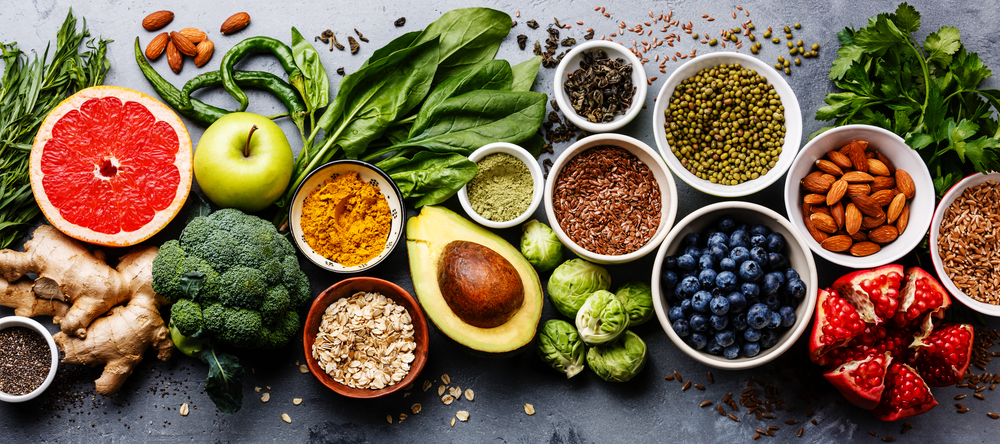Urinary incontinence (UI) is a common condition that affects millions of people worldwide. While urinary incontinence can be caused by various factors, such as age, medical conditions, and pregnancy, dietary choices can play a role in managing and potentially improving symptoms. Certain foods can either exacerbate or alleviate urinary incontinence, and understanding which foods work best can make a noticeable difference in your condition.
Foods That May Help Alleviate Urinary Incontinence
While no single food can entirely stop urinary incontinence, some can support bladder health and potentially reduce symptoms. These foods typically help to reduce inflammation, maintain bladder muscle function, and support overall health. Below are some foods that may benefit those with urinary incontinence:
1. Fiber-Rich Foods
A high-fiber diet is crucial for bladder health, as constipation is a known factor that can aggravate urinary incontinence. Straining during bowel movements increases pressure on the bladder, which can lead to incontinence symptoms. Foods high in fiber, such as:
- Whole grains (oats, brown rice, quinoa)
- Fruits (apples, pears, berries)
- Vegetables (spinach, carrots, broccoli)
- Legumes (beans, lentils, chickpeas)
These foods promote regular bowel movements and reduce the likelihood of constipation, helping to prevent added pressure on the bladder.
2. Cranberries
Cranberries are well-known for their ability to prevent urinary tract infections (UTIs), which can worsen incontinence. The compounds in cranberries, particularly proanthocyanidins, help prevent bacteria from adhering to the urinary tract lining. While cranberries alone may not stop incontinence, consuming them as part of a healthy diet can reduce the risk of UTIs and support overall urinary tract health.
- Best options: Fresh cranberries, unsweetened cranberry juice, or cranberry supplements.
3. Watermelon
Watermelon is a natural diuretic, meaning it promotes the production of urine. This may seem counterintuitive for those with incontinence, but watermelon can be a helpful food when eaten in moderation. It is also high in water content, helping to keep the bladder flushed and reducing the risk of bladder infections.
- Best options: Fresh watermelon or watermelon juice (without added sugar).
4. Magnesium-Rich Foods
Magnesium plays a role in muscle function and can help prevent bladder spasms, which are often associated with incontinence. A diet rich in magnesium may help relax bladder muscles and reduce the urgency and frequency of urination. Some magnesium-rich foods include:
- Leafy greens (spinach, kale)
- Nuts and seeds (almonds, pumpkin seeds)
- Legumes (black beans, kidney beans)
- Whole grains (brown rice, quinoa)
5. Omega-3 Fatty Acids
Omega-3 fatty acids are known for their anti-inflammatory properties and can help reduce bladder inflammation. Chronic inflammation in the bladder can contribute to incontinence symptoms. Foods rich in omega-3s include:
- Fatty fish (salmon, mackerel, sardines)
- Flaxseeds
- Walnuts
- Chia seeds
Foods to Avoid That May Worsen Urinary Incontinence
While some foods support bladder health, others can irritate the bladder and worsen incontinence symptoms. Here are some foods and drinks that may need to be avoided:
1. Caffeine
Caffeine is a known bladder irritant. It can increase urine production, leading to frequent urination and urgency. For those with urinary incontinence, it’s best to limit or avoid caffeinated beverages, such as:
- Coffee
- Tea
- Soda (particularly energy drinks or colas)
2. Alcohol
Like caffeine, alcohol is a diuretic and can irritate the bladder, increasing the need to urinate. It can also affect the nervous system, leading to decreased bladder control. Limiting or avoiding alcohol consumption can help manage incontinence symptoms.
3. Artificial Sweeteners
Artificial sweeteners, often found in sugar-free products, can irritate the bladder and trigger symptoms of incontinence. Aspartame and sucralose are two common sweeteners that should be avoided if you suffer from urinary incontinence.
4. Spicy Foods
Spicy foods can irritate the bladder lining and increase the urgency to urinate. If you notice that spicy foods make your incontinence symptoms worse, it may be best to reduce their intake. Spices such as chili peppers and hot sauces can trigger bladder spasms, leading to discomfort.
5. Acidic Foods
Highly acidic foods, such as citrus fruits (oranges, lemons), tomatoes, and vinegar, may cause bladder irritation in some individuals. If you experience discomfort or an increase in urinary frequency after consuming acidic foods, try reducing them from your diet and see if your symptoms improve.
Managing Urinary Incontinence Through Smart Dietary Choices
While no single food can completely stop urinary incontinence, the right diet can certainly help manage symptoms and support bladder health. Fiber-rich foods, cranberries, magnesium, and omega-3 fatty acids can reduce inflammation, improve bladder function, and prevent additional strain on the bladder.
Conversely, avoiding caffeine, alcohol, artificial sweeteners, spicy foods, and acidic foods can help minimize irritation and discomfort. As with any health condition, it’s essential to work with your healthcare provider to create a diet plan that supports your specific needs and helps improve your quality of life. By making informed dietary choices, you can take control of your bladder health and alleviate many of the symptoms associated with urinary incontinence.

